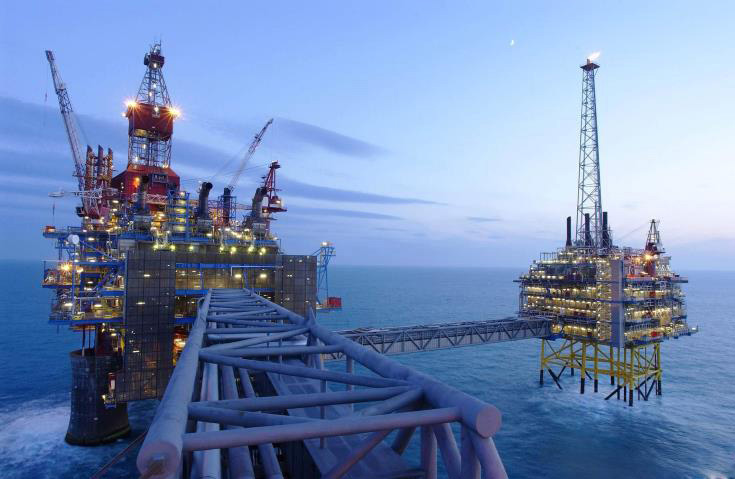Energy Minister George Papanastasiou on Tuesday spoke of “cautious optimism” regarding talks with energy giant Chevron over development of the Aphrodite offshore gas field.
Without divulging details of the discussions – now in a sensitive phase – the minister also hinted the two sides have edged closer to a deal.
“At this time, there is a positive mood from both sides,” Papanastasiou told state broadcaster CyBC.
“Personally, I’m optimistic about a positive outcome. The joint venture consists of serious companies. I believe the operators [Chevron] have understood the concerns of the Republic, and for our part we understand the financial concerns of the joint venture, so I think we’re headed for a quick development of the reservoir.”
The minister confirmed having received last Friday a letter from Chevron “the content of which is deemed to be positive, with some reservations.”
He added that the government has since replied to the company “in a likewise positive spirit” but also seeking some clarifications on the contents of Chevron’s letter.
“We await until Monday, November 27 the response of the company regarding these clarifications, and we anticipate that there will follow contacts at a regular interval, with the aim of quickly developing Aphrodite with a solution that is commonly acceptable.
“And when I say quick development, we mean end of 2027 or early 2028 for the first gas to come to the surface.”
The minister stressed that the “starting point, as always, is the 2019 development and production plan for the Aphrodite reservoir. That plan speaks of infrastructures, which for the Republic are extremely important.”
Papanastasiou would not be drawn on the chief point of dispute between the government and Chevron – the construction or not of a Floating Production Unit (FPU) platform atop the reservoir.
The joint venture with the concession on Aphrodite would save an estimated €1 billion by not building an FPU. For its part, Nicosia says having the platform would allow for greater gas recovery, thus maximising revenues for the Republic of Cyprus.
But answering a follow-up question, Papanastasiou did reveal part of the reason why Cyprus insists on the FPU.
“The FPU in question is for Aphrodite specifically. But floating units can be moved, so they can be used wherever needed,” he said, evidently referring to other gas discoveries in Cyprus’ Exclusive Economic Zone.
Asked next whether the government might share in the costs of an FPU, the minister said no such discussions have taken place. At any rate, he added, this would take an amendment to the development plan agreed back in 2019.
Papanastasiou conceded that without an FPU the project can be completed sooner, but not by much: “So instead of late 2027, it would be six months earlier.”
The government spokesman meanwhile said an outcome from the negotiations was “expected as soon as possible.”
Konstantinos Letymbiotis was speaking after a meeting of the cabinet.
“We are in the middle of a negotiation, and at this stage it would not be useful to make any further comments. The [Aphrodite] reservoir is important to both the company and the Republic, and the presence of a company like Chevron in the Cypriot EEZ is a vote of confidence.”
In May the consortium submitted a revised development plan for the gas field. The Cypriot government rejected the amendments at the end of August, with the contract providing for 30 days of negotiations to resolve the dispute. The negotiation period was extended for another 30 days with a deadline on November 5, which was then pushed back again.
Discovered in 2011, the Aphrodite reservoir holds an estimated 4.5 trillion cubic feet of recoverable gas.
Chevron are the operators and a 35 per cent partner in the field, along with Shell (35 per cent) and Israeli firm NewMed Energy (30 per cent).







Click here to change your cookie preferences